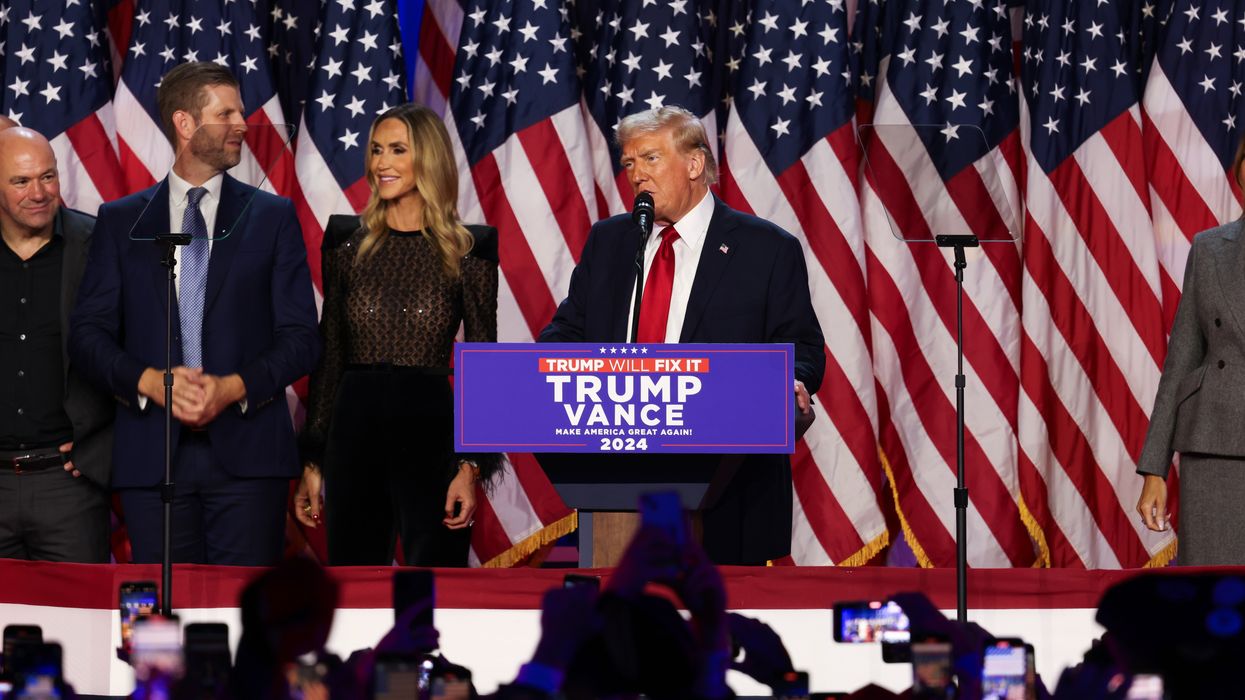Schmidt is a columnist and editorial board member with the St. Louis Post-Dispatch.
This election was not about our national identity or a reflection of who we are as a collection of people. Rather, it centered on whether our most essential requirements as citizens were being served by our government.
A resounding number of voters told Vice President Kamala Harris and the Democratic Party that the answer to that question was “No.”
In 1943 Abraham Maslow published his pyramidal "Hierarchy of Needs" model. He laid out a psychological motivational theory, which states there are five levels of human needs that dictate behavior: physiological, safety, love/belonging, esteem and self-actualization. Maslow also postulated that the lower-level needs like food, water and safety must be met first before higher needs can be fulfilled.
The 2024 election proved to be a hierarchy of needs election in which voters punished the current administration and its party for their shortcomings in this regard.
Right before the election, The Fulcrum’s David Nevins and I laid out our case for why we thought there was no moral equivalence between former President (and now President-elect) Donald Trump and Harris. Trump’s moral repugnancy was a disqualifying red line for us.
Many, including me, have spent years proclaiming that when it came to character and values, Trump did not represent who we are as a country. Since the election, many of Harris’ supporters have been making wide and sweeping accusations of their fellow Americans who voted for Trump and wondering, “What does this say about us that we would re-elect him?”
My assessment is quite different. When the election is viewed through the lens of this hierarchy of needs, it becomes clear why so many in the electorate would vote for Trump and other Republicans down ballot.
The lowest level on Maslow’s pyramid is physiological. These physiological needs are the biological requirements for human survival, e.g., air, food, drink, shelter, clothing, warmth and sleep.
Thus, looking at the election through the lens of human survival needs, it becomes clear how the dramatic increase in the cost of food, drink, shelter, clothing and warmth since 2021 impacted the election. Add to this fact that interest rates also went up so that affordable mortgages were out of reach for many, especially new home buyers. Plus, higher energy costs and one can clearly see how Maslow’s pyramid impacted the election.
The second lowest level in Maslow’s model is safety and security. At this level, humans desire order, predictability and control in their lives. The Biden-Harris track record in this arena has been abysmal.
The House Oversight and Accountability Committee, in conjunction with the House Homeland Security Committee, reported: “Under President Biden’s watch, there have been over 8 million migrant encounters nationwide, 6.7 million of which have been at the Southwest border. Worse yet, over 1.7 million known ‘gotaways’ — illegal immigrants who have evaded Border Patrol — are now living in the interior of the United States without documentation and without having undergone any vetting by immigration officials.”
While overall crime has decreased since the 1990s, current crime data and statistics paint an incomplete picture of where we are today. In April 2024, the Pew Research Center published a survey showing that a growing share of Americans said reducing crime should be a top priority for the president and Congress. Almost six in 10 U.S. adults (58 percent) held that view in April, which was up from 47 percent at the beginning of Biden’s presidency in 2021.
The disastrous and chaotic withdrawal of troops from Afghanistan in 2021 began Biden's political slide. A separate Pew poll found that while 54 percent of Americans say it was the right decision to pull troops from Afghanistan, only 27 percent rated Biden's handling of the situation as "excellent" or "good," while 29 percent rated it "only fair" and 42 percent rated it "poor."
Whether Russia’s invasion of Ukraine or Hamas' Oct. 7, 2023, attack on Israel — killing 1,200 and taking 254 people hostage, including 12 Americans — can be blamed on the Biden administration is certainly debatable, but the perception of chaos on the world stage likely impacted voters to cast their ballot for Trump.
In our writing two weeks ago, Nevins and I appealed to the higher level of self-esteem in our moral equivalency column. Maslow describes the elevation of self-esteem as confidence, achievement, respect for others and the need to be a unique individual.
But a majority of Americans placed a higher priority in those first two levels of needs, and so it is no wonder they voted to reinstate Trump, with the hope that maybe he and downballot Republicans could deliver those more basic necessities at a lower cost.
It is clear that Americans expect their government to help them achieve or sustain those lower-level needs. If an administration is unable to do that, they will likely find electoral defeat.



















 From left to right: Gabriel Cardona-Fox, Bud Branch, Joe Concienne
From left to right: Gabriel Cardona-Fox, Bud Branch, Joe Concienne 
Trump & Hegseth gave Mark Kelly a huge 2028 gift